12 Signs You're Eating Too Much Fat
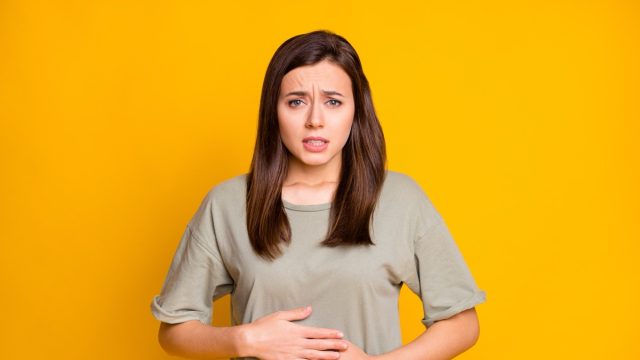
Fat is essential for health—but as with sodium, you can have too much of a good thing. "Consuming high levels of calories – regardless of the source – can lead to weight gain or being overweight," says the American Heart Association. "Consuming high levels of saturated or trans fats can also lead to heart disease and stroke. Health experts generally recommend replacing saturated fats and trans fats with monounsaturated fats and polyunsaturated fats – while still maintaining a nutritionally adequate diet." Here are 12 signs you may have too much unhealthy fat in your diet.
Weight Gain

Fat contains more calories per gram than carbs or protein. "Fats play an important role in our diet, and our bodies need them to function properly," Mauricio González, MD, tells AARP. "But we need to consume fats the right way. We gain weight if we consume more calories than we burn, and it doesn't really matter where those calories come from."
Nonalcoholic Fatty Liver Disease
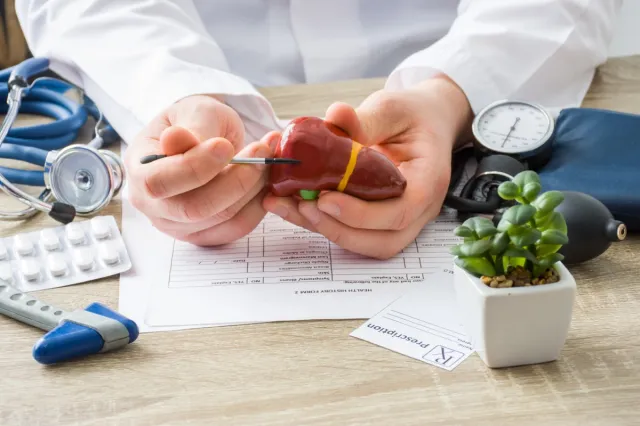
Too much fat can cause liver issues. "One of the main health problems associated with too much fat in the GI tract is nonalcoholic fatty liver disease (NAFLD), which can develop when fat builds up in your liver," Mahendran Jayaraj, MD, tells Orlando Health. People with NAFLD may experience inflammation and liver cell damage that can cause scarring called cirrhosis and eventually lead to liver failure."
Diarrhea
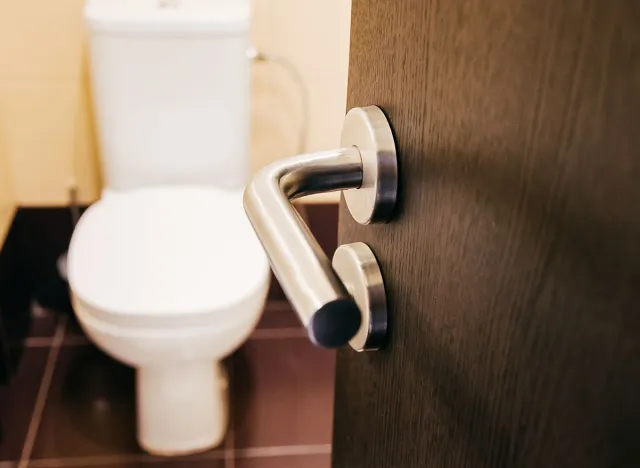
Consuming too much fat can negatively impact your digestion. "Too much fat in the digestive tract can also cause digestive problems like diarrhea, which happens when unabsorbed fat collects in the small intestines and colon, where water is pulled in and creates diarrhea," Dr. Jayaraj says. "If it becomes chronic, diarrhea can lead to malnutrition because the body can't absorb the nutrients it needs."
Bloating and Gas

High-fat foods can cause bloating and gas. "Higher-fat foods such as beef, pork, and just about anything that has been fried can take a while to break down in your belly," says the Cleveland Clinic. "That's why you often feel stuffed for a long, long time after downing a fatty dish."
Fatigue

Too much fat can cause fatigue and tiredness. "Cholecystokinin (CCK) is a hormone that stimulates the digestion of fat and is released when we eat high-fat meals," according to ZOE. "Scientists suspect that this hormone can contribute to post-meal sleepiness, explaining why we can feel sleepy even after a lower-carb, higher-fat meal."
Depression

Unhealthy fats can cause depression. "Fried foods are likely mood killers because they're usually fried in unhealthy fats," Dr. Uma Naidoo tells CNBC. "In recent years, the conversation around fat in diet has changed. Now nutritionists distinguish between 'bad fats' (i.e., margarine, hydrogenated oils), which are known to cause cardiovascular disease and other woes, and 'good fats' (i.e., avocados, olive oil) that can help benefit well-being."
RELATED: 8 Fasting Methods to Lose Weight, According to a Doctor
High Cholesterol
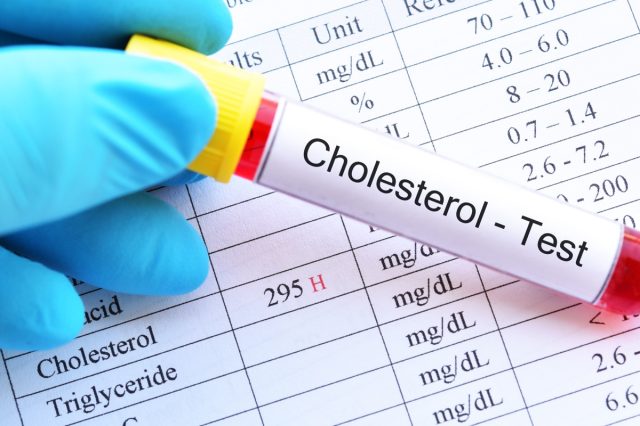
Unhealthy fats can cause high levels of "bad" LDL cholesterol. "A diet laden with trans fats increases the risk of heart disease, the leading killer of adults," says the Mayo Clinic. "The more trans fats eaten, the greater the risk of heart and blood vessel disease."
Poor Sleep

Too much fat and protein can disrupt your sleep. "In one study, rats that ate a high-fat diet for eight weeks had more fragmented sleep at night and were excessively sleepy during the day," says Johns Hopkins Medicine. "This may be because high-fat foods brought about weight gain and a decrease in sensitivity to the brain chemical orexin, which helps regulate the body's sleep clock."
RELATED: 16 Warning Signs You May be Eating Too Many Processed Foods
High Blood Pressure

Too much fat can cause high blood pressure. "Fats are very high in energy and any fats your body doesn't use is stored as body fat," says Blood Pressure UK. "It's important not to eat too much fat because being overweight will raise your blood pressure and your risk of heart disease and stroke."
Diabetes
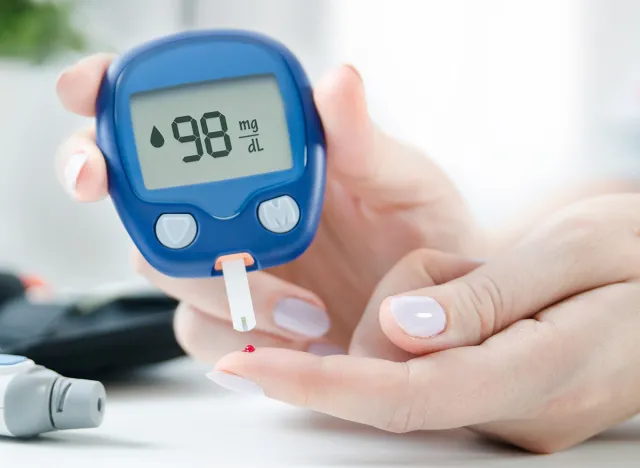
Too much fat can make it difficult to manage type 2 diabetes. "Fat is very high in calories with each gram of fat providing more than twice as many calories compared to protein and carbohydrate," says Diabetes UK. "Eating too much fat can lead to you taking in more calories than your body needs which overtime causes weight gain which can affect your diabetes control and risk of heart disease."
Nausea

Eating too much fat can cause nausea. "Experiencing nausea or sudden shifts in appetite can often be a body's cry for help, signaling that your fat intake might have gone from nourishing to excessive," says Dr. Eric Berg, DC.
RELATED: I'm Super Fit at 54 and Here Are 5 Things I Do to Be "Fitter, Stronger, and Healthier"
Gallbladder Issues

Too much fat can cause gallbladder issues. "Gallstones are fairly common in Western countries because our diets have more processed and fatty foods," says David Efron, MD, chief of acute care surgery at The Johns Hopkins Hospital. "Many of us are walking around with gallstones and don't know it. But that alone isn't an indication that you'll have a gallbladder attack or need it removed. Gallstones usually aren't a problem until they cause symptoms." And if you enjoyed this article, take advantage of these 15 Quick Ways to Lose Body Fat Percentage in a Week.




